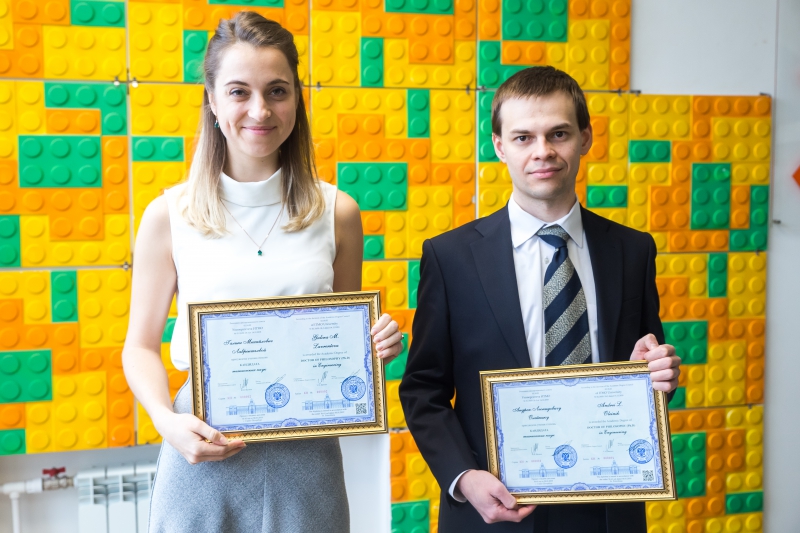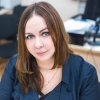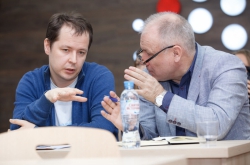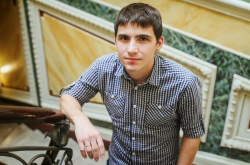How the first defenses were carried out
Defending your thesis before an ITMO University’s own academic degree council is different from the conventional procedure set by the Supreme Certification Commission (SCC). Above all else, it’s more modern from the technical standpoint, featuring e-voting options and an opportunity for both members of the council and thesis opponents to participate in the defense remotely.
The quality of academic degrees awarded in the course of the procedure was also enhanced thanks to the participation of international experts who, as per the new rules, have to fill in the role of one of the thesis opponents present at a defense. The requirements for how theses are presented were, too, subject to change. For example, a candidate’s scientific results should from now on receive approbation at a national- or international-level conference before they are put to defense, which wasn’t in the rules set by the SCC.
The academic degree councils have themselves become smaller in size, comprising nine members for awarding a candidate of sciences degree and 11 for awarding a doctor of sciences degree (by comparison, the SCC councils included more than 20 members).
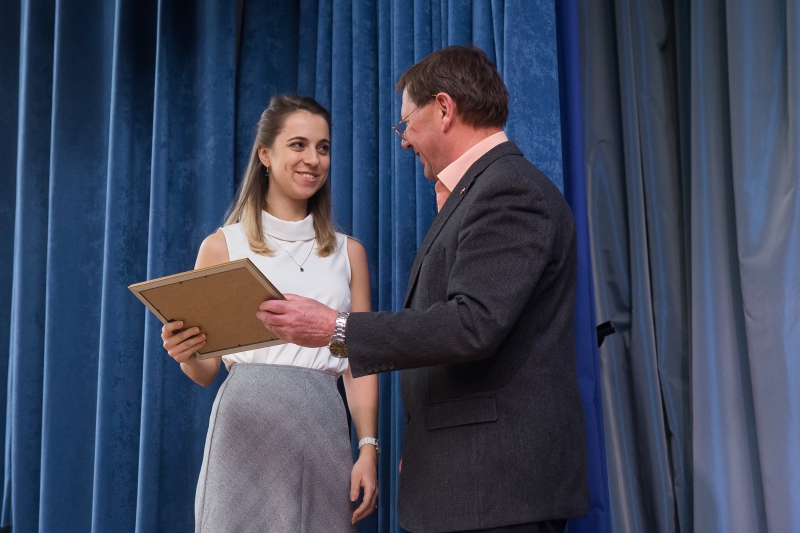
ITMO held its first independent thesis defenses in December 2018. The now-candidates of engineering Galina Lavrentyeva and Andrey Oleynik were among those who decided to opt for the new procedure. Both were PhD students at ITMO University and are now working at the Speech Technology Center. Andrey Oleynik’s thesis topic was “Methods and algorithms of mutual reconstruction of face and voice data”, while Galina Lavrentyeva’s work tackled “Methods and complexes of software tools for detecting attacks on voice biometric systems”. On February 26, 2019, they were awarded their academic degree diplomas issued by the new ITMO University standards.
You can learn more about the requirements for the members of the new academic degree councils, as well as how the latter are created and how the first defenses came to pass, in this article by ITMO.NEWS.
Advantages of the new diplomas
According to Maria Skvortsova, head of the Office of International Postgraduate and Doctoral Studies, ITMO University-issued diplomas fully comply with the state-approved format. They give their holders the same rights as the SCC-issued degrees, but also offer a range of additional perks that allow for avoiding excessive red tape linked to employment procedures.
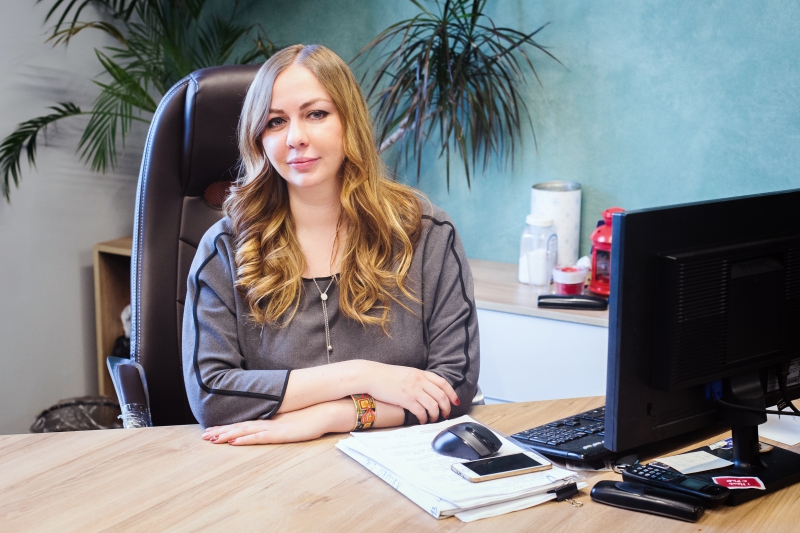
“Whilst having the same legal status as diplomas issued by the Supreme Certification Commission, ITMO’s own diplomas come with an English translation, helping graduates skip the usual step of having them translated and verified. Moreover, the new diplomas have better protection levels and include a QR code that links to the information on the degree holder, their thesis and thesis defense, given in both Russian and English languages,” explains the head of the Office of International Postgraduate and Doctoral Studies.
Maria Skvortsova adds that these advantages can improve the diploma holder’s employment prospects, including at the international level. While previously potential employers had to address a university or the SCC with an official inquiry in order to check the information provided by a job seeker, now they have the opportunity of doing this without any third parties involved, thus saving themselves and the candidate time.
ITMO.NEWS met with Galina Lavrentyeva and Andrey Oleynik to talk about their decision to defend as per the new rules, as well as their current work, objectives, and prospects.
What were your theses about and what tasks are you working on now?
Galina Lavrentyeva: I work with machine learning in the field of voice biometric data. My thesis was dedicated to the detection of attacks on voice biometric systems, with an objective to develop the means for protecting these systems from malefactors.
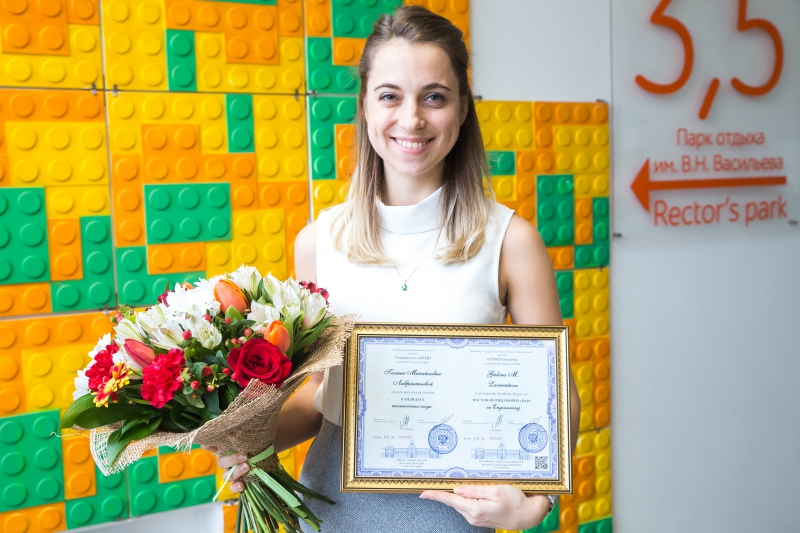
More detailedly, my research attempts to solve the following problem. Let’s say we have a voice biometric system that offers an opportunity for protecting some kind of valuable information (a bank account or any other user account) with the owner’s unique voice biometric data used as a key so that everyone wanting to access this information asked to pronounce a verification passphrase. As of today, these systems ensure a high level of security, but there is still this threat of malefactors trying to get hold of the information protected.
How could they do this in case of a biometric system, given that they don’t have physical access to its modules? They’ll try to fake the pronunciation of the passphrase, for example, by using a pre-prepared recording of the targeted person’s voice, or by using a synthesized recording. The main goal of my work was to find the ways for protecting the voice biometric system from these attacks by means of detecting them, and I proved that this can be done, and with high accuracy too.
Andrey Oleynik: I wrote my thesis on the topic of “Methods and algorithms of mutual reconstruction of face and voice data”. In the course of my research, I worked with both audio-visual data, which is when a person speaks and a system records their voice and facial expressions, and multi-sensory images of faces, which is when we have data in the form of photos, pictures, and images in the infrared spectrum.
What I found was that despite that these are, by their nature, all different kinds of data, we can solve related tasks by using one mathematical apparatus. The implication that follows is that the same methods can be used for solving a very wide range of problems. In the future, this mathematical apparatus can even be applied to other tasks, for example, those connected to the cross-modal search with feed data including not only images or audio recording but also text.
What prompted your decision to defend your thesis as per the new rules?
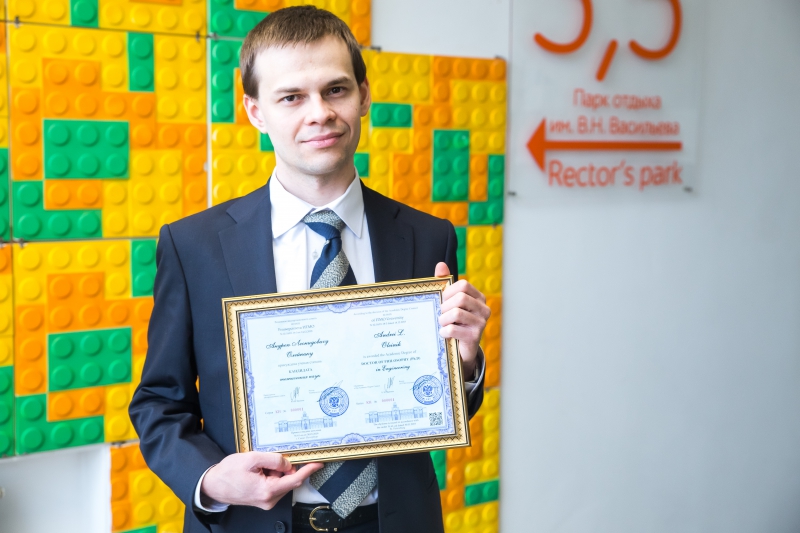
Andrey: I decided to defend my thesis before ITMO University’s own academic degree council because this was a council that pertained to my major, a council where all of the members were specialists in my field of research. Even if we look at the questions that were asked at the defense, what shines through is the fact that they were much more specific than the ones usually asked. It’s no secret that the SCC councils are larger, and include experts from different scientific fields who, because of their background, all have a different take on your work. Sometimes this can lead to the discussion veering away to adjacent fields which don’t necessarily have much to do with the original topic. I think that the new format is better suited to my specialization.
Galina: My choice was also determined by the fact that the new academic degree council consisted of experts with a similar specialization to mine. On the day, my thesis was evaluated by specialists in not only machine learning and speech information systems, but also information security. So it was only natural that I opted for this defense procedure.
The conventional defense procedure didn’t require candidates to have their research results approbated at scientific conferences, but you were bound to do this by the new standards. Was it difficult for you to achieve and did it help you in any way?
Galina: My work showcased the results of my participation in the international contest ASV Spoof 2017, at which my solution took first place having shown high effectiveness in detecting different types of attacks. I also partook in this year’s ASV Spoof and am now waiting for the results to be announced mid-March.
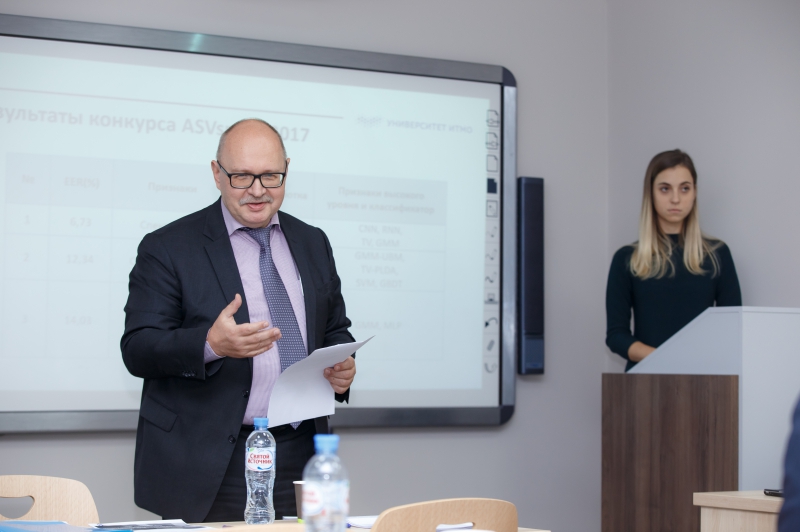
Taking my research to conferences was part and parcel of my thesis work; the majority of my findings were presented and discussed at world-class conferences on biometrics and signal processing. Giving these presentations really helped me prepare for the defense; this was a very important aspect of my work, and one that gave me a lot of valuable experience. Having our results evaluated by leading experts in our field means that, in some sense, we’d already passed our defense at least once by the time we got to the real one.
Andrey: I participated in several international conferences on image processing, namely such conferences in Poland and Portugal. There is, of course, some difference between presenting your findings at a scientific event and at the actual thesis defense, but it’s a great, and undoubtedly very helpful, experience nevertheless; it boosts your confidence in giving presentations in English, for one thing, and allows you to bring your terminology in accordance with the international standards. The very way of how ITMO University’s defenses themselves are held is based on international standards, so participating in conferences does bring a lot to the table.
The new rules also stipulate that one of the opponents must be an international expert with relevant research experience. How significantly, in your opinion, will that up the level of the thesis defense?
Galina: The participation of international opponents takes the defense to a whole other level, that’s for sure. Moreover, this helps us bring our research to a larger group of specialists, and increases the scope of opponents we as candidates can choose from. You could invite an opponent from abroad before, but this was much more difficult. We’re breaking new ground which, being amazing in itself, also means that we can now share our research with colleagues from all over the world.
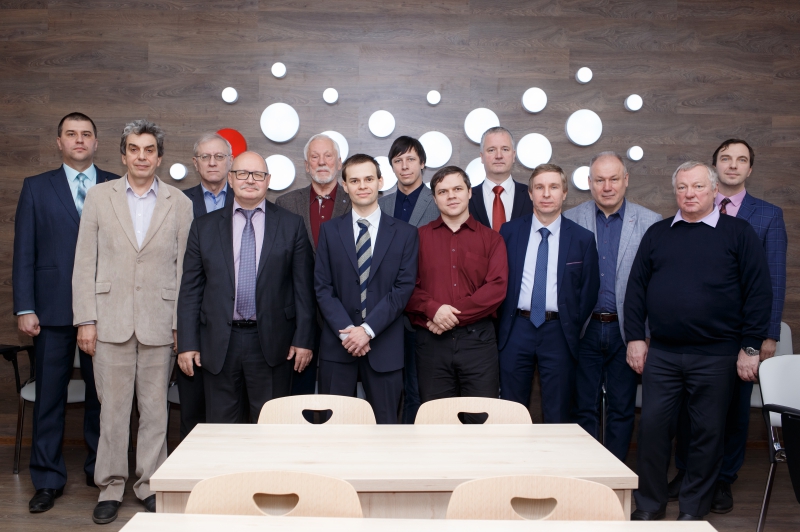
Andrey: I think that another great requirement is that we now have to write a thesis abstract in English. This obviously means that from now on, anyone who speaks English can familiarize themselves with our work, and this is a significant perk. Another advantage is that the diplomas we receive are both in Russian and English, with the latter specifying that you are a PhD. This is very important as translating your diploma into a foreign language can eat a lot of your time and effort. All in all, our defenses are now aligned with the international best practices, and this is something to rejoice in.
What is your current focus and how do you think your diploma will come in handy in the future?
Galina: In my day-to-day work I’m switching between ITMO and in the Speech Technology Center, where I focus on developing a technology for the detection of spoofing attacks, as well as a system for the verification of speakers based on their voice. Having this new-and-improved diploma certainly gives me more weight when communicating with my colleagues. But what also gives my knowledge and skills an international seal of approval is the fact that back in my time at the university, I’d been on an academic exchange at the Sapienza University of Rome, where I worked side-by-side with some of the world’s leading researchers. So you could say that my PhD studies as a whole trained me to work in international environments.
Andrey: I also work at the Speech Technology Center, where I research facial image processing and face biometrics at large. In my opinion, receiving a PhD means acquiring a certain social status. When you in your workplace communications are introduced as a PhD, it alone can give the work the right dynamic, which is especially important at the international level.
